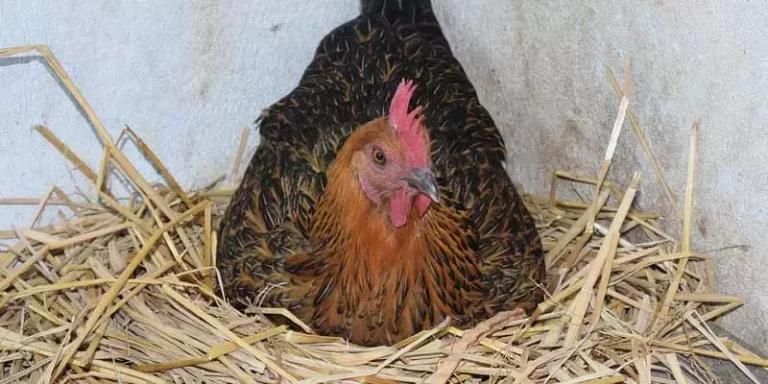Some hens get broody and make a lot of noise day and night. These noisy hens are called “broodies”. When the hen gets broody, she will usually lay her eggs in the nest box, or wherever it is that she has decided that she wants to sit for a few weeks. If a hen is broody, there may be some warning signs that you should be aware of before she starts to lay eggs.
What Is A Broody Hen?
Broody hens are hens that are going to sit on their eggs for up to four weeks. Hens will usually start to brood when the day length is shorter than 18 hours and when she has been in contact with a rooster.
Broody Hens Are Noisy
Broodies are usually very loud, so if you hear your hen making a lot of noise, it probably means she is broody. When the hen gets broody, she will usually sit on her eggs for a few weeks before they hatch. If your hen is sitting on eggs and making a lot of noise, she’s probably broody.
What To Do If Your Hen Is Broody
If your hen has been making a lot of noise, you may want to consider moving her to a different location. This can be done by taking a clean basket and putting your broody hen in it. You could also put her in a small cage for the time being. Alternatively, you could try the “backyard” method: when she gets broody, turn on the sprinklers and let her go outside.
If your hen is broody and making a lot of noise, give her food that is high in protein content (like seeds) or vitamins to help make up for the energy she consumes while incubating eggs.
Another thing you can do if your hen is getting too noisy is to cover the nest box with blankets at night. These blankets will keep out light and noise so that your broody chicken will be more likely to sleep through the night.
How To Tell If Your Hen Is Getting Broody And Making Noise
You should check the nest box, or wherever it is she might be sitting. If you find eggs in the nest box, then your hen is getting broody. You can also look for droppings that could indicate she has started to lay eggs.
If you notice these signs and your hen still starts to make noise, there are a few things you can do to get her to stop.
The Signs That Your Hen May Be Getting Broody
There are some signs that your hen may be getting broody. Some of these signs are physical, while others are behavioral. You should watch your hens carefully to notice if they start displaying any of the following signs:
– They spend a lot of time in the nest box.
– Your hens will pick over the same spot on the ground repeatedly.
– They have begun spending more and more time out at night.
– One or more of your hens begins to show interest in sitting on eggs, even though she has never laid an egg before and you don’t have any eggs to lay yet.
– One or more of your hens will stop eating, but continue to drink water as if they were going to lay eggs soon. – They start walking around with their tail feathers spread out and back feathers tucked close to their body as if they were sitting on eggs.
Prevention Of a Broody Hen
There are a few different things that you can do to help prevent a hen from getting broody. First, make sure that she has enough food. Hens need protein, fat, and calcium in their diet to keep them healthy as they get older. Next, make sure that the hen feels safe and secure by providing her with a nest box or other place to sit, keeping her out of danger from predators such as cats or dogs. Finally, make sure that the hen is provided with all of the necessities for laying eggs: fresh water and nesting material like straw or wood shavings.
If you notice any signs of a broody hen around your home or farm, here are some tips on what to do:
– Provide her with an adequate supply of food and water
– Monitor her during the day and check if anything seems off about her behavior
– Offer plenty of hiding spots for her if you think something might be bothering her
– Keep away from predators like cats and dogs
Conclusion
Hens are noisy birds that produce a variety of sounds. But, when they get broody, they will start making a lot of noise. If this happens, the best thing to do is to keep the hens separate and don’t let the hens interact or get too close to each other.


